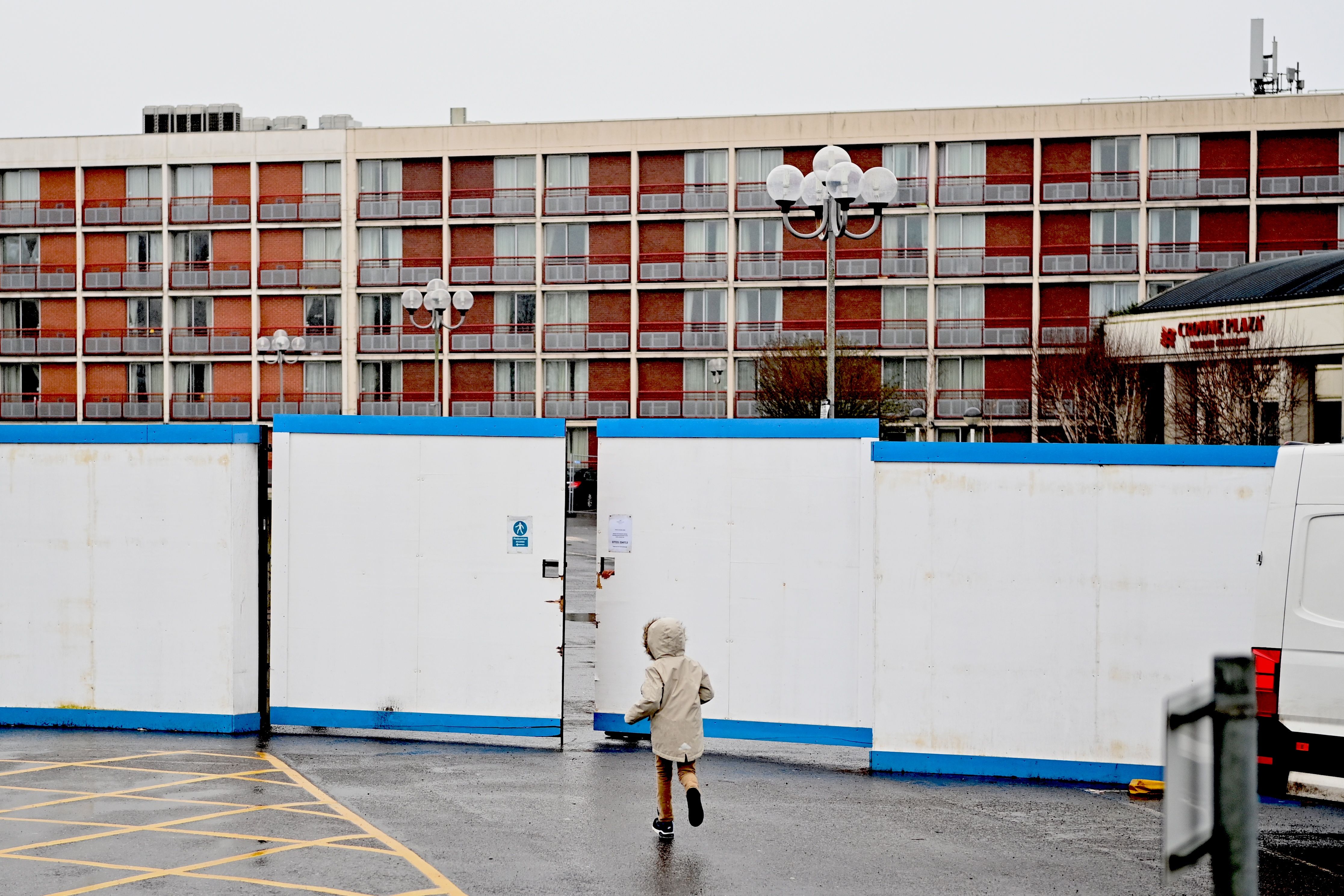Britain’s asylum system is a national embarrassment
Editorial: Forcing asylum seekers to share hotel rooms with strangers is another pitiful example of how far we have fallen short in our obligation to treat them with fairness, dignity and compassion

The incompetence and inhumanity of the British asylum system continues to be a standing national embarrassment. This week alone we have reported on a contractor who worked for the Foreign Office in Afghanistan, who was accepted on the settlement scheme and put up in a hotel in Pakistan, only to be told at the last moment that his clearance to come to the UK had been issued in error.
We then revealed the government had reversed its policy of leaving Afghans granted refugee status stranded in Pakistan – following The Independent’s coverage of the issue – and was scrambling charter flights to rescue them from an unsafe situation.
Now, we report that the government’s plan to cut the use of hotels by forcing asylum seekers to share rooms has been branded dangerous by a cross-party committee of MPs.
Robert Jenrick, the immigration minister, had proudly announced in the Commons on Tuesday that the scheme to require more asylum seekers to share rooms would allow the government to end contracts with 50 hotels. The announcement came after a lot of dithering about the day on which it would be made, which suggested that not all was well behind the scenes.
We can now see, from the report by the Public Accounts Committee which said the compromises being made to cut the £8m-a-week hotel bill were “alarming”, why that might have been. The committee criticises the Home Office for failing to consider the possible trauma of forcing asylum seekers to share rooms. Just to look at Afghanistan alone, the hostilities between different ethnic, religious and linguistic groups are complicated enough.
Mr Jenrick’s share-a-room scheme seems so obviously designed to secure a few cheap headlines – “empty the hotels” has been adopted as the slogan to distract from the failure of the previous one, “stop the boats”. It has been devised to give Conservative MPs facing local opposition to hotels being turned into asylum hostels something to put on their leaflets in the hope of avoiding a Tory wipeout at the general election.
But it does nothing to alleviate the underlying problem, which is that the boats are still coming and asylum applications are not being processed quickly enough. It is another attempt to secure a presentational victory in dealing with one small part of the problem in an attempt to distract people from the vast failure of the whole system.
Rishi Sunak tried earlier this year to claim that he was getting to grips with the asylum system by saying that he would get the “legacy backlog” down. Since then, the Home Office has claimed to be making progress in reducing the number of asylum applications that were outstanding at the time the prime minister made his pledge – ignoring the fact that new applications continue to be made, and that the total backlog has continued to grow.
It will take a huge administrative effort, but a humane and compassionate asylum system is one of the obligations this country owes to the world. We should be ashamed that we take much fewer refugees than other countries, and that we treat the ones that we do take so badly. On asylum, Mr Sunak needs to make what he calls “long-term decisions for a brighter future”.



Join our commenting forum
Join thought-provoking conversations, follow other Independent readers and see their replies
Comments